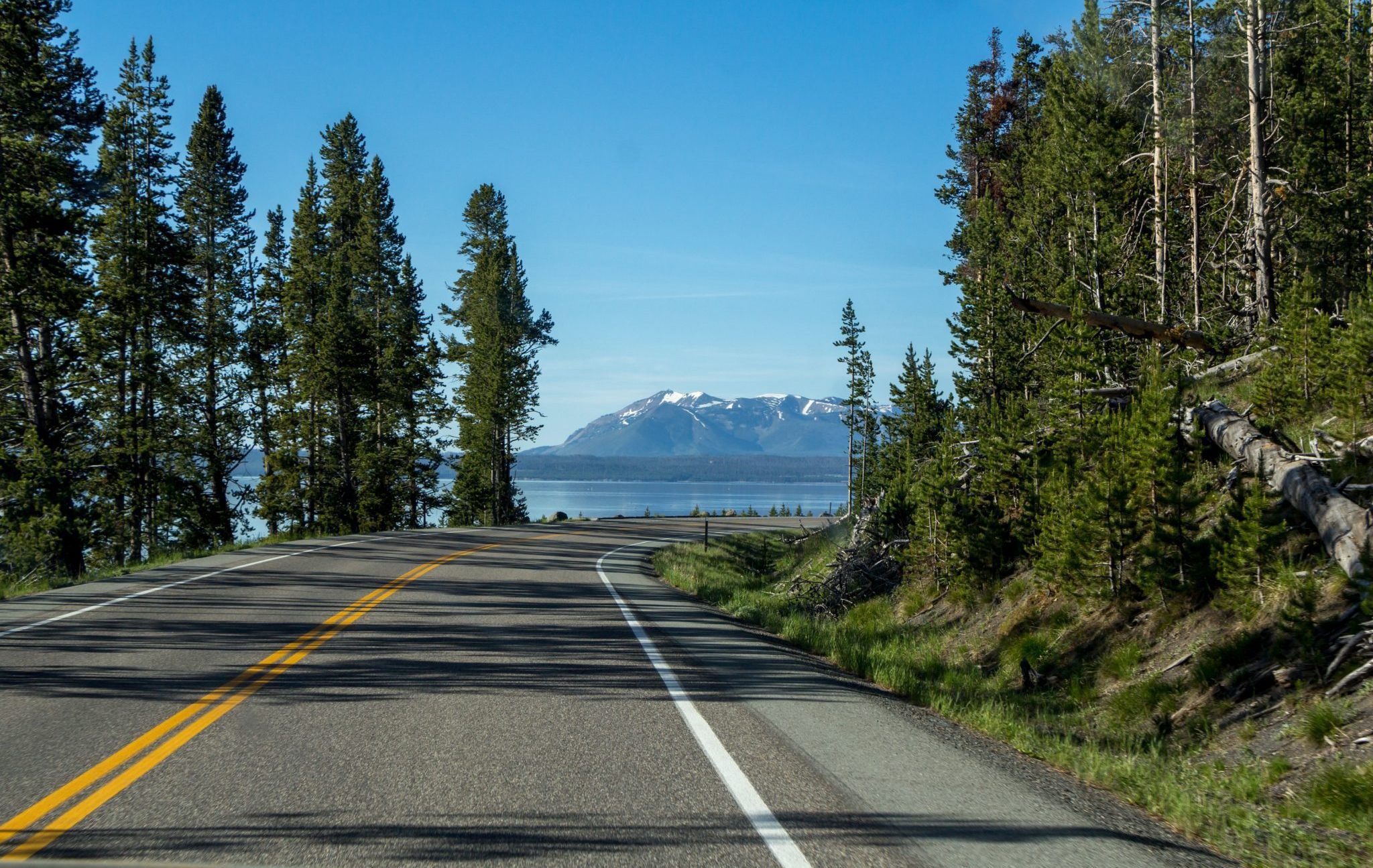The Road: A Familiar Frontier

Traveling by airplane post-pandemic isn’t getting any easier.
As most of America returns to the sky, and airplanes struggle to scale back up to pre-pandemic levels of operation, flights seem to be canceled or extensively delayed more often than ever. You’re still required to wear a mask throughout the airport, boarding, and the duration of your flight—even while sleeping—despite your vaccination status. If you forget, as the anodyne voice in Delta’s automated pre-flight video announces, “we will gently remind you.” After a year of getting places on your own time, in your own car, with no one but the speed limit on the interstate telling you what to do, it’s no wonder Americans are still choosing to drive more than they did before the pandemic. Flying just isn’t the thrilling adventure it used to be.
An essential part of the American character is preserved in our ability to conquer frontiers. At least, that’s what Frederick Jackson Turner argued in his 1893 work, The Significance of the Frontier in American History. Apple pie and baseball can take a backseat; covered wagons and dusty roads say more about our temperament and unquenchable thirst to discover and overcome. Above all, a truly American frontier involves risk. It’s not a frontier if it’s safe.
When the West was conquered, Turner wrote, it was the end of an era:
And now, four centuries from the discovery of America, at the end of a hundred years of life under the Constitution, the frontier has gone, and with its going has closed the first period of American history.
Then came the automobile, as Patrick Deneen noted in an essay for The American Conservative back in 2013. Deneen writes that Patrick Lee Allen, in his book, The Big Change: America Transforms Itself 1900-1950, builds on Turner’s frontier thesis when describing the automobile era. The automobile reopened the frontier to Americans, providing a new wilderness to quench her spirit: the wilderness of the open road. Allen sought to praise the modern American economy for creating the affluence others saw as potentially corrupting; in driving, too, he recognized something untamed and, therefore, inherently risky.
Today, however, driving hardly involves the frontiersmanship it used to. You don’t have to have read Matthew Crawford’s latest book to be convinced of this. The move to automation is steering the economy in every avenue, from the medical industry to McDonald’s. Self-driving cars are just part one.
In Why We Drive, Crawford rails against the “self-driving future” that puts Americans in the backseat of life, while a faceless force moves them from place to place. One could add to his description the other places in which Americans have already ceded autonomy for automation, such as in personal finance, where we rarely see a real dollar bill, only know our worth via changing numbers on virtual bank accounts, and pay with the tap of a plastic card. Or plane travel, especially after 2020, where every airline reminds you “your health and safety is their first priority”—so mask up, buckle up, use your fingers to signal your drink preference so you don’t have to move your face covering, and plug into a screen for the duration of this experience which used to be miraculous and wild.
With the risk factor—the human factor, that is—curtailed as much as possible, both on the road and elsewhere, the second frontier is fast closing. Enervated in our quest for efficiency, we lack a fresh frontier.
But for the majority of American travelers who say they want to travel more in 2021 than in the last two years, for whom the car is their preferred mode of transportation, there’s a chance to breathe fresh life into the old frontier. It may not be the same full-body experience it was for our grandparents, who matured in the golden era of road trips, before GPS and smartphones, and certainly it’s far less of an exercise than our forefathers, who pioneered the west without running water or combustion engines, but it can still be an exercise in risk and liberty, hard to come by in a world with few remaining wildernesses.
At the least, driving gives the traveler a chance to hold the reigns of the journey in his own hands, rather than allowing an increasingly automated world to shuffle him to and fro.
When you’re at the steering wheel, you’re responsible for your vehicle in all its complexities. You’re charting the course, and choosing when it’s more prudent to detour than to stick to the plan. You decide if you make the turn at a safe speed, a reasonable speed, or a dangerous one. No stewardess is going to warn you if there’s “sudden rough air.”
When you hit the road, you have the opportunity to meet strange and fascinating people, too. Refueling requires visiting a place you’d likely never pick as a destination, even if it’s just a Mobil in Ypsilanti, Michigan. You may even (heaven forbid) have to use a bathroom that hasn’t been cleaned every 20 minutes. On the road, you can let Google Maps gently guide you to your destined location, or you can use a real map, but either way you’ll get a far more tangible sense of place—yours, and your destination’s—than you do flying 10,000 feet overhead.
When you road trip, and especially when you choose to do so with fewer modern safety nets, you can engage with what’s left of the frontier, take some risks, and gain a taste for the pioneering American spirit in the process.
Comments